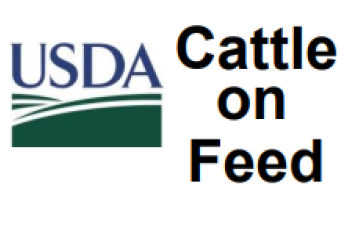Evening Report | February 6, 2024

Check our advice monitor on ProFarmer.com for updates to our marketing plan.
Fine tuning expected in February S&D Report... Analysts expect USDA to make modest changes to its domestic usage and ending stocks forecasts in Thursday’s Supply & Demand Report. Traders expect slightly smaller ending stocks for corn and wheat; bigger carryover for soybeans. Greater focus will be placed on USDA’s South American production forecasts, especially for Brazil. While USDA is expected to trim its Brazilian soybean and corn crop forecasts, they will likely remain above private forecasters. The following pre-report estimates are from Reuters; Bloomberg for cotton.
|
Expectations for U.S. Carryover |
||
|
Corn – billion bushels |
|
|
|
2022-23 |
2023-24 |
|
|
Average est. |
NA |
2.146 |
|
Range |
NA |
2.065 – 2.212 |
|
USDA January |
1.361 |
2.162 |
|
|
||
|
Soybeans – million bushels |
|
|
|
2022-23 |
2023-24 |
|
|
Average est. |
NA |
284 |
|
Range |
NA |
245 – 310 |
|
USDA January |
268 |
268 |
|
|
|
|
|
Wheat – million bushels |
|
|
|
2022-23 |
2023-24 |
|
|
Average est. |
NA |
647 |
|
Range |
NA |
625 – 662 |
|
USDA January |
582 |
648 |
|
|
|
|
|
Cotton – million bales |
|
|
|
2022-23 |
2023-24 |
|
|
Average est. |
NA |
2.86 |
|
Range |
NA |
2.65 – 3.00 |
|
USDA January |
4.25 |
2.90 |
|
Expectations for Global Carryover |
||
|
Corn – MMT |
||
|
|
2022-23 |
2023-24 |
|
Average est. |
NA |
324.02 |
|
Range |
NA |
317.00 – 329.09 |
|
USDA January |
300.56 |
325.22 |
|
|
||
|
Soybeans – MMT |
||
|
|
2022-23 |
2023-24 |
|
Average est. |
NA |
112.48 |
|
Range |
NA |
109.00 – 115.00 |
|
USDA January |
101.87 |
114.60 |
|
|
||
|
Wheat – MMT |
||
|
|
2022-23 |
2023-24 |
|
Average est. |
NA |
260.48 |
|
Range |
NA |
257.00 – 263.50 |
|
USDA January |
271.56 |
260.03 |
|
|
||
|
Cotton – million bales |
||
|
|
2022-23 |
2023-24 |
|
Average est. |
NA |
84.37 |
|
Range |
NA |
84.00 – 85.00 |
|
USDA January |
83.22 |
82.38 |
USDA to issue final 2020 and 2021 ERP payments... USDA will begin issuing final Emergency Relief Program (ERP) payments totaling approximately $306 million to eligible commodity and specialty crop producers who incurred losses due to natural disasters in 2020 and 2021. USDA’s Farm Service Agency (FSA) will begin issuing these additional payments to eligible producers this week.
Recipients of the additional payment are limited to those producers who received ERP Phase 1 payments from FSA that were calculated based on crop insurance indemnities. Initially, ERP Phase 1 payments to producers who were indemnified through federal crop insurance, were subject to a 75% payment factor. FSA has since determined adequate funding exists to provide an additional 3.5% ERP Phase 1 payment to producers who had crop insurance increasing the overall payment factor to 78.5%. These additional ERP Phase 1 payments are subject to FSA payment limitations.
Because ERP Phase 1 payments to producers of noninsured crops covered by FSA NAP policies were originally paid at 100%, there will be no additional payments issued to these producers for 2020 and 2021 losses.
Chinese ships get cheaper insurance to navigate Red Sea... Bloomberg reports Chinese-owned merchant ships are getting hefty discounts on their insurance when sailing through the Red Sea. That’s another sign of how Houthi attacks in the area are punishing the commercial interests of vessels with ties to the west.
Earlier today, Yemen’s Iran-aligned Houthis said they had fired missiles at two vessels in the Red Sea, causing damage to the ships. The group’s military spokesperson said it had fired naval missiles at the Star Nasia and Morning Tide, identifying the Marshall Islands and Barbados-flagged ships, respectively, as American and British.
Ukraine’s January grain exports surpass year-ago for second straight month... January was another month of strong grain exports from Ukraine, according to SovEcon, which pegged the monthly total at 5.3 MMT. While that was down modestly from December, it marked the second straight month in which grain exports exceeded the year-earlier tally. Corn accounted for around 60% of total grain shipments last month.
Weaker commodity prices reduce farmer sentiment... The Purdue University/CME Group Ag Economy Barometer fell 8 points (7.0%) from the previous month to a reading of 106 in January, down 24 points (18.5%) from a year-ago. Producers expressed a more pessimistic perspective about their farms’ current situation and future prospects. The Current Conditions Index fell 9 points, and the Future Expectations Index dropped 7 points from December. The anticipation of weaker farm income in 2024 contributed to the overall decline, reflected in the Farm Financial Performance Index, which posted a 12-point decrease from the previous month.
Declining prices for key commodities weighed on agricultural producer sentiment in January. The percentage of producers citing lower prices for crops and livestock as a top issue this month matched the percentage indicating input prices as a top concern. Previously, the response “higher input prices” was consistently chosen by producers as their top concern. The combination of high input costs and declining commodity prices generated a weaker financial performance outlook for 2024 and a weaker capital investment index. When asked to compare their farms’ operating loan size in 2024 to 2023, fewer producers than a year ago expected a larger loan. Among those anticipating an increase in loan size, fewer farms attributed it to rising input costs with more farms pointing to an increase in their operation’s size as a key reason.
China expresses concerns to U.S. over tariffs, sanctions during talks... China expressed concerns to visiting U.S. Treasury officials about American tariffs, investment restrictions and sanctions set up to “suppress” Chinese companies, the Chinese finance ministry said. The two sides had “in-depth, frank, pragmatic and constructive” exchanges on their macroeconomic situation and policy in the meetings this week in Beijing, the ministry said.
In a separate meeting, China’s vice premier He Lifeng also met with the U.S. Treasury Undersecretary for International Affairs Jay Shambaugh on Tuesday, China’s official Xinhua news agency reported. He urged the two countries to deepen exchanges and cooperation to stabilize and develop the China/U.S. economic relationship, the agency added.
Sinking odds for Senate border/aid measure... A bipartisan border deal and foreign aid package is likely to fail in the Senate this week due to strong opposition from former President Trump and leading House Republicans. The bill’s uncertain fate has also put assistance to Ukraine and Israel, both important U.S. allies, in jeopardy.
House Speaker Mike Johnson (R-La.) announced the House will hold a vote this week on a separate bill to provide aid to Israel. This move is intended to increase pressure on senators to separate Israel’s aid from other contentious issues, such as the situation at the U.S./Mexico border.
However, the White House has stated President Joe Biden would veto a standalone aid package for Israel, characterizing the bill as a “cynical political maneuver.”
AAR defends U.S. railroad safety amid disagreements... In response to recent comments made by Transportation Secretary Pete Buttigieg regarding rail safety, the Association of American Railroads (AAR) issued a strong letter defending the safety record of the U.S. railroad industry. AAR asserts that rail transportation is the safest mode for cargo in the country, citing statistics that demonstrate improvements in employee casualty rates and a decrease in train accidents over the years.
AAR expressed disappointment in what it sees as a misrepresentation of the industry’s safety record and efforts to enhance safety, suggesting such misunderstandings undermine public confidence in both rail safety and the Transportation Department.
The letter referenced the East Palestine, Ohio, derailment from a year ago, where a Norfolk Southern Corp. freight train derailed, leading to significant costs and environmental concerns.
AAR also challenged the widely cited statistic of over 1,000 train derailments annually, arguing the majority of these occur in rail yards or low-speed tracks, which are less severe and comparable to fender benders. However, the union representing rail workers disagrees with AAR’s claims. They argue railroads have opposed new safety proposals, lobbied against rail-safety legislation in the Senate and continue to operate longer trains, which they contend pose safety risks. Additionally, the union criticized Norfolk Southern’s limited participation in a Confidential Close Call Reporting System, which allows workers to report unsafe practices without fear of reprisals.
AAR defended the industry’s efforts to enhance safety, highlighting the voluntary placement of hot-bearing detectors and the lowering of temperature thresholds to identify anomalies along rail tracks. AAR maintains railroads are committed to advancing safety through their initiatives and collaborations with the Department of Transportation.






